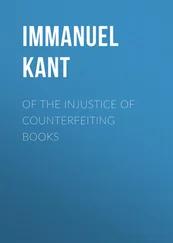Chapter I. Of the Transcendental Clue to the Discovery of all Pure Conceptions of the Understanding.
Introductory. §§ 3
Table of Contents
When we call into play a faculty of cognition, different conceptions manifest themselves according to the different circumstances, and make known this faculty, and assemble themselves into a more or less extensive collection, according to the time or penetration that has been applied to the consideration of them. Where this process, conducted as it is mechanically, so to speak, will end, cannot be determined with certainty. Besides, the conceptions which we discover in this haphazard manner present themselves by no means in order and systematic unity, but are at last coupled together only according to resemblances to each other, and arranged in series, according to the quantity of their content, from the simpler to the more complex — series which are anything but systematic, though not altogether without a certain kind of method in their construction.
Transcendental philosophy has the advantage, and moreover the duty, of searching for its conceptions according to a principle; because these conceptions spring pure and unmixed out of the understanding as an absolute unity, and therefore must be connected with each other according to one conception or idea. A connection of this kind, however, furnishes us with a ready prepared rule, by which its proper place may be assigned to every pure conception of the understanding, and the completeness of the system of all be determined a priori — both which would otherwise have been dependent on mere choice or chance.
Section I. Of defined above Use of understanding in General. §§ 4
Table of Contents
The understanding was defined above only negatively, as a non-sensuous faculty of cognition. Now, independently of sensibility, we cannot possibly have any intuition; consequently, the understanding is no faculty of intuition. But besides intuition there is no other mode of cognition, except through conceptions; consequently, the cognition of every, at least of every human, understanding is a cognition through conceptions — not intuitive, but discursive. All intuitions, as sensuous, depend on affections; conceptions, therefore, upon functions. By the word function I understand the unity of the act of arranging diverse representations under one common representation. Conceptions, then, are based on the spontaneity of thought, as sensuous intuitions are on the receptivity of impressions. Now, the understanding cannot make any other use of these conceptions than to judge by means of them. As no representation, except an intuition, relates immediately to its object, a conception never relates immediately to an object, but only to some other representation thereof, be that an intuition or itself a conception. A judgement, therefore, is the mediate cognition of an object, consequently the representation of a representation of it. In every judgement there is a conception which applies to, and is valid for many other conceptions, and which among these comprehends also a given representation, this last being immediately connected with an object. For example, in the judgement “All bodies are divisible,” our conception of divisible applies to various other conceptions; among these, however, it is here particularly applied to the conception of body, and this conception of body relates to certain phenomena which occur to us. These objects, therefore, are mediately represented by the conception of divisibility. All judgements, accordingly, are functions of unity in our representations, inasmuch as, instead of an immediate, a higher representation, which comprises this and various others, is used for our cognition of the object, and thereby many possible cognitions are collected into one. But we can reduce all acts of the understanding to judgements, so that understanding may be represented as the faculty of judging. For it is, according to what has been said above, a faculty of thought. Now thought is cognition by means of conceptions. But conceptions, as predicates of possible judgements, relate to some representation of a yet undetermined object. Thus the conception of body indicates something — for example, metal — which can be cognized by means of that conception. It is therefore a conception, for the reason alone that other representations are contained under it, by means of which it can relate to objects. It is therefore the predicate to a possible judgement; for example: “Every metal is a body.” All the functions of the understanding therefore can be discovered, when we can completely exhibit the functions of unity in judgements. And that this may be effected very easily, the following section will show.
Section II. Of the Logical Function of the Understanding in Judgements. §§ 5
Table of Contents
If we abstract all the content of a judgement, and consider only the intellectual form thereof, we find that the function of thought in a judgement can be brought under four heads, of which each contains three momenta. These may be conveniently represented in the following table:
| 1 Quantity of judgements Universal Particular Singular |
| 2 Quality Affirmative Negative Infinite |
3 Relation Categorical Hypothetical Disjunctive |
| 4 Modality Problematical Assertorical Apodeictical |
As this division appears to differ in some, though not essential points, from the usual technique of logicians, the following observations, for the prevention of otherwise possible misunderstanding, will not be without their use.
1. Logicians say, with justice, that in the use of judgements in syllogisms, singular judgements may be treated like universal ones. For, precisely because a singular judgement has no extent at all, its predicate cannot refer to a part of that which is contained in the conception of the subject and be excluded from the rest. The predicate is valid for the whole conception just as if it were a general conception, and had extent, to the whole of which the predicate applied. On the other hand, let us compare a singular with a general judgement, merely as a cognition, in regard to quantity. The singular judgement relates to the general one, as unity to infinity, and is therefore in itself essentially different. Thus, if we estimate a singular judgement (judicium singulare) not merely according to its intrinsic validity as a judgement, but also as a cognition generally, according to its quantity in comparison with that of other cognitions, it is then entirely different from a general judgement (judicium commune), and in a complete table of the momenta of thought deserves a separate place — though, indeed, this would not be necessary in a logic limited merely to the consideration of the use of judgements in reference to each other.
2. In like manner, in transcendental logic, infinite must be distinguished from affirmative judgements, although in general logic they are rightly enough classed under affirmative. General logic abstracts all content of the predicate (though it be negative), and only considers whether the said predicate be affirmed or denied of the subject. But transcendental logic considers also the worth or content of this logical affirmation — an affirmation by means of a merely negative predicate, and inquires how much the sum total of our cognition gains by this affirmation. For example, if I say of the soul, “It is not mortal”— by this negative judgement I should at least ward off error. Now, by the proposition, “The soul is not mortal,” I have, in respect of the logical form, really affirmed, inasmuch as I thereby place the soul in the unlimited sphere of immortal beings. Now, because of the whole sphere of possible existences, the mortal occupies one part, and the immortal the other, neither more nor less is affirmed by the proposition than that the soul is one among the infinite multitude of things which remain over, when I take away the whole mortal part. But by this proceeding we accomplish only this much, that the infinite sphere of all possible existences is in so far limited that the mortal is excluded from it, and the soul is placed in the remaining part of the extent of this sphere. But this part remains, notwithstanding this exception, infinite, and more and more parts may be taken away from the whole sphere, without in the slightest degree thereby augmenting or affirmatively determining our conception of the soul. These judgements, therefore, infinite in respect of their logical extent, are, in respect of the content of their cognition, merely limitative; and are consequently entitled to a place in our transcendental table of all the momenta of thought in judgements, because the function of the understanding exercised by them may perhaps be of importance in the field of its pure a priori cognition.
Читать дальше












